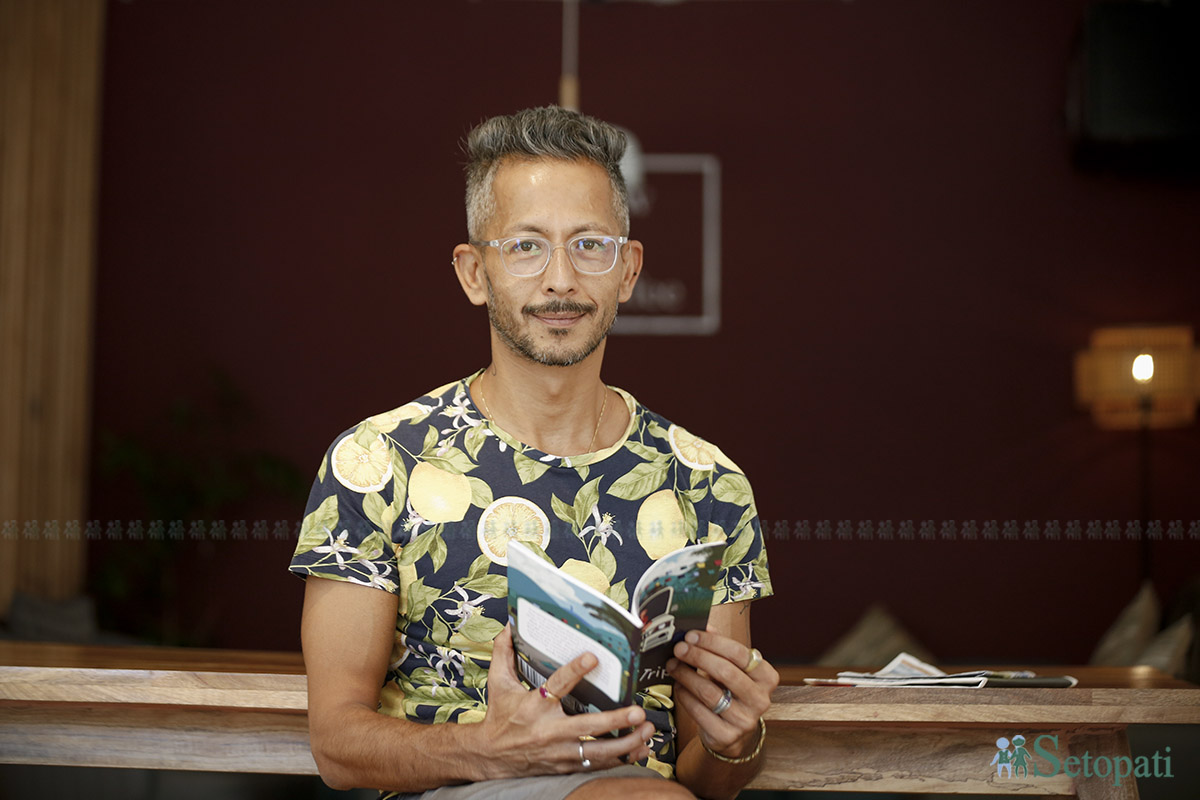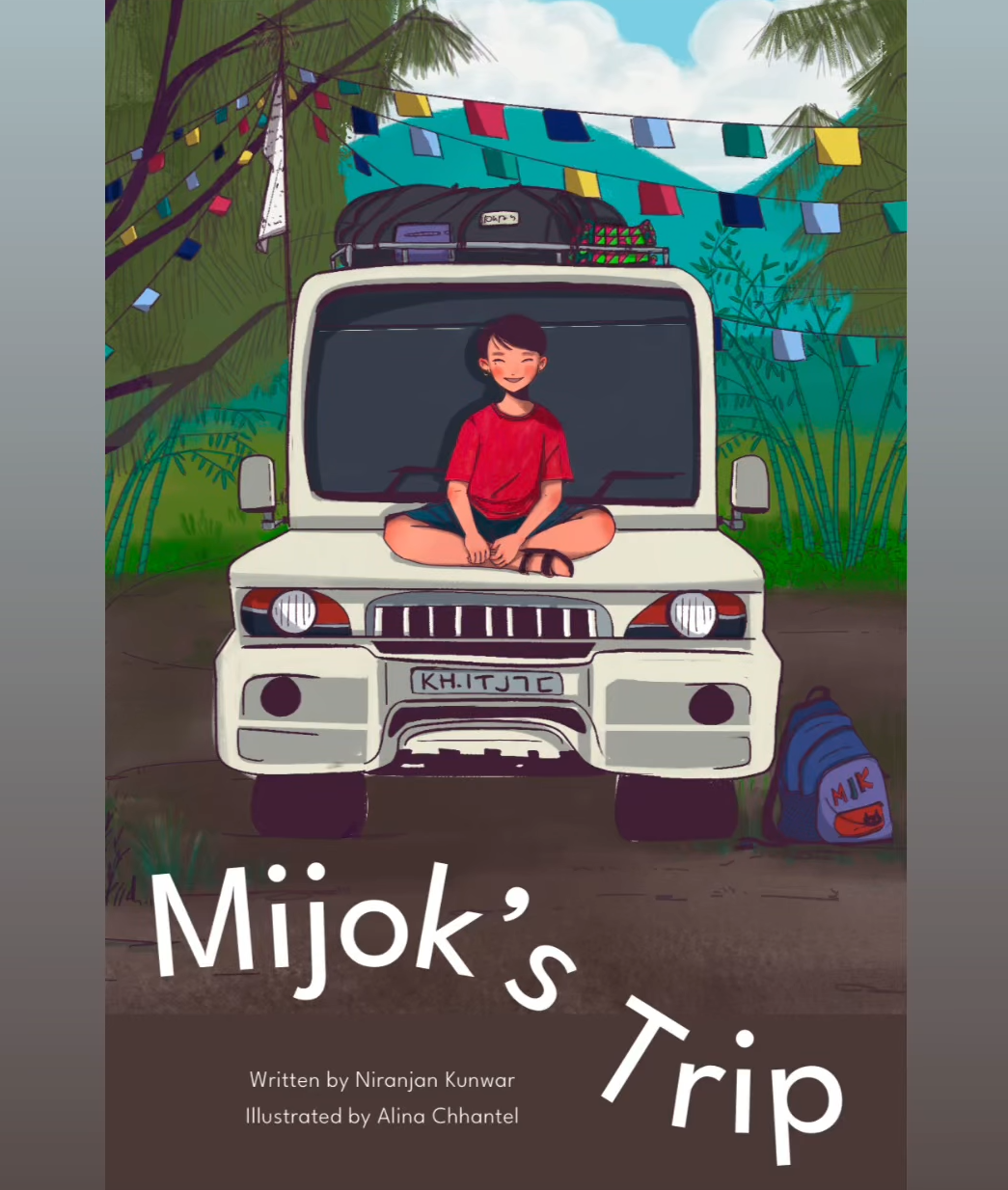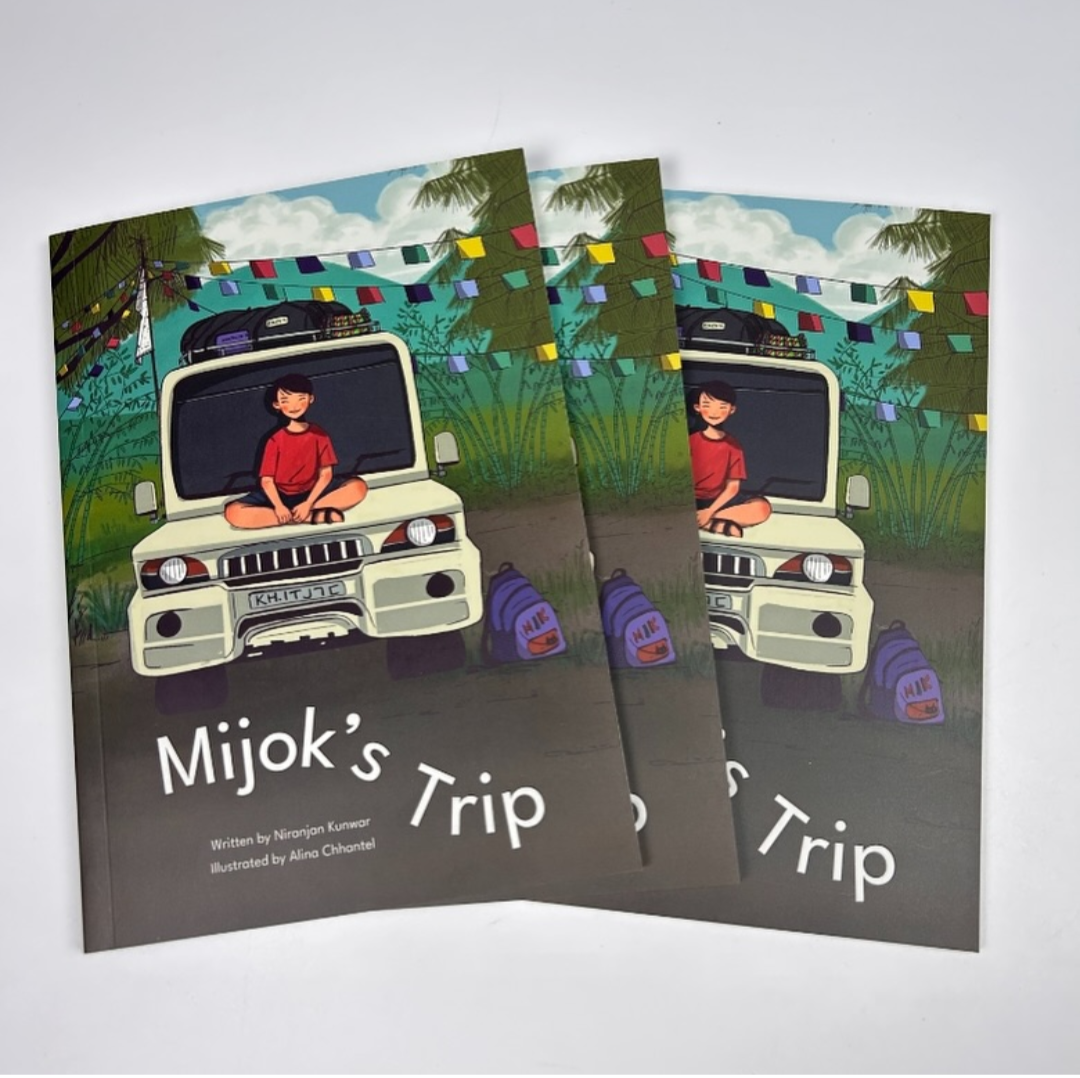Mijok's Trip
📚 Featured Article

तिहार नभए पनि उज्यालो मन बोकेर हिँडेकी मिजोकको कथा
तिहारको समय छ। यो चाडमा काग, कुकुर, देवी लक्ष्मी, गाई, गोरू, आफ्ना दाजुभाइ र आफू स्वयंलाई पूजा गरिन्छ। झलमल्ल बत्ती बालेर घर उज्यालो पारिन्छ।
📸 Our Featured Shot

🎥 Watch Our Trailer
🎥 Watch Our Trailer
📸 Our Featured Shot

Read Alouds
Making Read-Alouds Diverse and Inclusive
A year after launching Katha4Nepal, many parts of Nepal are under another lockdown. During uncertain times, it's even more important to engage meaningfully with young children. We are grateful to our community members for sharing stories and joining our efforts to engage children. We would now like to encourage our readers to be more conscious about the content and characters in their stories. Do the stories have a fair portrayal of diverse peoples, cultures, genders, lifestyles and languages? Are we having proper conversations with young people regarding problems and challenges in our society? For other Read Alouds for children, check out Katha4Nepal
Making Read-Alouds Effective
As part of our educational series on Read-Alouds, we bring you our second video that shares strategies and tips: "Making Read-Alouds Effective." Our intention is to engage and support teachers and caretakers seeking to make the most out of their Read-Aloud sessions with young people. Do share these videos with your network to help us promote reading culture. We are always open to feedback and opportunities for further collaboration. This initiative is supported by Let's Read Asia. For other Read Alouds for children, check out Katha4Nepal
When Read-Alouds Raise Complex Issues
The third video of our educational series is a more detailed demonstration of a Read Aloud lesson. Anchored by the picture book "Julian is a Mermaid" in which a young boy explores femininity, this reading lesson nudges adults to grapple with complex issues such as gender roles and expectations: What are your values? What is your stance? For other Read Alouds for children, check out Katha4Nepal
Educational Programs
Thinkshop, Lifelong Learning
Highlights from the course at Thames International College. Students share the value of their encounters with literature and subsequent insights.
The Laramie Project educational program
Highlights from the educational outreach program that aimed to sensitize students regarding LGBTIQ issues.